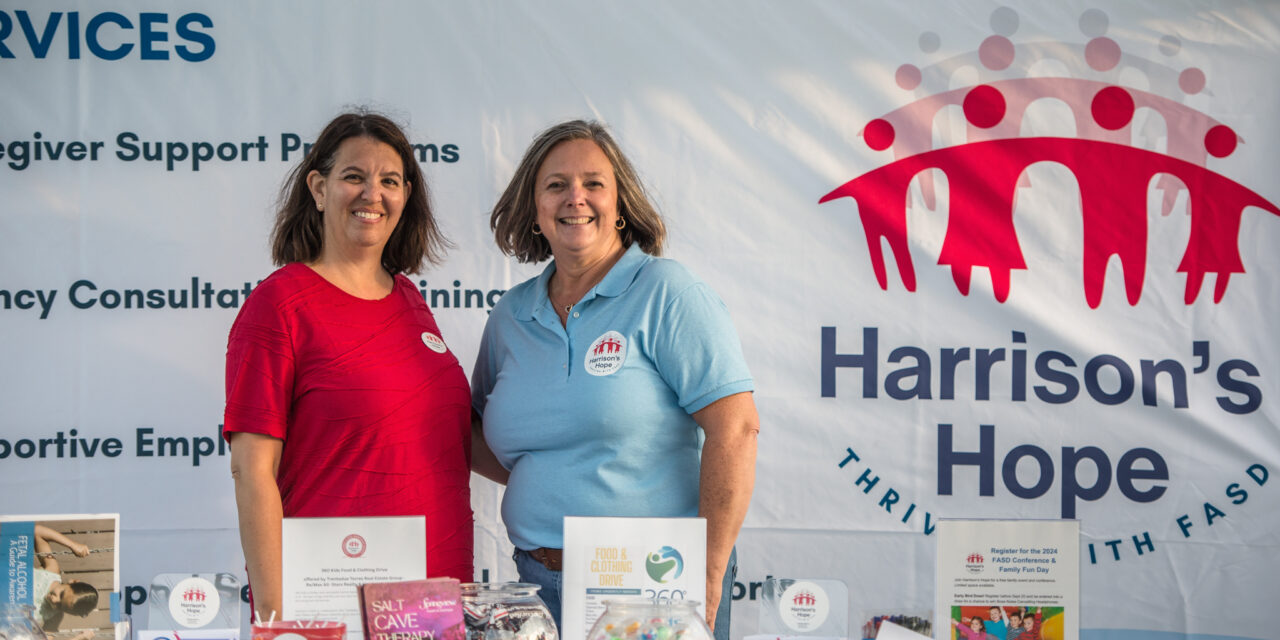- Harrison’s Hope aims to empower and support families living with Fetal Alcohol Spectrum Disorder (FASD), raise community awareness, and advocate for necessary services.
- FASD affects approximately 4% of the Canadian population, with many cases remaining undiagnosed.
- It is the leading cause of neurodevelopmental disability and the only one that is preventable.
- The organization was founded by Mary Byrnes and Caroline Johnson, who bring a combination of lived and professional experience to their efforts.
- Harrison’s Hope is hosting an FASD Conference and Family Fun Day from 10 a.m. to 2 p.m. on October 5 at the Stouffville Sportsplex, located at 45 Innovator Avenue.
Fetal Alcohol Spectrum Disorder results from prenatal exposure to alcohol and can impact individuals at any age. According to the FASD Network of Saskatchewan, its effects can include cognitive, behavioural, physical, and sensory disabilities. Impairments may affect motor skills, cognition, language, memory, and impulse control to varying degrees.
Mary Byrnes adopted her son Harrison when he was just 20 hours old. Despite her background in early childhood education and a university degree in sociology and psychology, she struggled to soothe him.
“I just couldn’t figure it out, but when he started walking, albeit delayed, he was running full speed the next day and hasn’t stopped since,” Byrnes said. Describing Harrison as an amazing, sweet, and kind person, she explained his difficulties with social interaction and growing challenges at home and school as his condition was repeatedly misdiagnosed.
“His school was sending him home because they couldn’t manage him, or he was being left behind or ignored,” she recalled. “We dealt with him eloping from the house, and I pushed for supports, services, and psychoeducational assessments only to find waitlists were years long… My husband and I were not prepared for any of it.”
The couple sought help and connected with Caroline Johnson, a registered social worker with 20 years of experience supporting children, youth, and families with complex needs in central and eastern Ontario. “Caroline helped us navigate the limited services and supports in York Region,” Byrnes said. “She was instrumental in bringing together a team of community partners to support us.”
With access to the right assessments, Byrnes’ family was able to secure an FASD diagnosis for Harrison and move out of their crisis state. She has since shifted her career to learn more about the disorder, provide necessary care for her son, and assist others facing similar circumstances.
After returning from a conference in Orlando, Byrnes met with Johnson to discuss what would become Harrison’s Hope. “I laid out a vision for a local FASD agency, a not-for-profit with the goal of becoming a charity,” she said. “It would offer supports and services ranging from prenatal education to end-of-life assistance for caregivers and individuals with FASD.”
“It was crucial to have a partner who understood the caregiver’s perspective and could back it up with clinical knowledge and relevant research,” Byrnes said of Johnson’s involvement. Now, with Harrison’s Hope established, they are focused on raising FASD awareness in Stouffville.
Harrison’s Hope hosted a Red Shoes Rock Walk-in-the-Park on September 9, marking their first public event and introduction to area residents. Attendees gathered to learn more about FASD and show support for affected individuals during a march around Memorial Park.
“We also intend for Harrison’s Hope to inform government planning and help them acknowledge the diverse needs of various neurodivergent groups,” Johnson said, highlighting intersections with autism spectrum disorder challenges and service demands as an example. “We aim to collaborate with those communities and other organizations representing Stouffville.”
One piece of legislation at the forefront of Byrnes’ and Johnson’s minds is Senate Bill S-253, sponsored by Senator Mohamed-Iqbal Ravalia. Known as the National Framework on Fetal Alcohol Spectrum Disorder Act, the bill is designed to support Canadians with FASD, their families, and caregivers.
Bullet Point News spoke to Kathy Unsworth, Managing Director at the Canada FASD Network. They partner with researchers and stakeholders across Canada “to address complexities of FASD with a focus on ensuring research knowledge is translated to community and policy action.”
“We hope that the biggest impact of S-253 will be increased government support,” Unsworth told us. “There are pillars of FASD efforts, including prevention, diagnosis, and support services, and how they are managed and administered can vary significantly.”
“The goal behind the bill is to establish standardized best practices while enhancing training and research capacity,” she continued. “With that framework, provinces and territories can work toward equal access to diagnosis and other services.”
Like Byrnes and Johnson, Unsworth is hopeful S-253 will have its time before the Social Affairs, Science and Technology Standing Committee following Bill C-64, An Act Respecting Pharmacare. While S-253 appears to have cross-party support, concerns grow over a potential Federal election as a new Parliament would reset the legislative process.
“It is critical that we get traction on that bill,” Byrnes emphasized. “When we get down into our communities, there is very little known about FASD.”
This lack of awareness can have serious consequences for those living with FASD. Without it and adequate support networks, individuals may face challenges with mental health, interpersonal relationships, academics, employment, substance abuse, and homelessness.
Building on the success of their Red Shoes Rock event, Byrnes and Johnson are looking forward to the FASD Conference & Family Fun Day on October 5. The conference will be open to all, with childcare and activities provided.
“We will start with the fundamentals of what FASD is, essentially FASD 101,” Johnson said. The event will also help caregivers establish support networks, addressing the detrimental isolation many face while supporting individuals living with the disorder.
“That isolation is the primary contributor to mental health vulnerability in caregivers, and Harrison’s Hope aims to disrupt that pattern and create a new pocket of wellness in our community,” Johnson added.
“The conference will also serve to connect Stouffville residents to valuable information we’re sharing. While focused on FASD, these insights can benefit all families in their daily lives, at school, and in the community,” Byrnes concluded. “It’s mindfulness information that everyone can use to have better days and less stress.”
Anyone interested in attending can register here.





